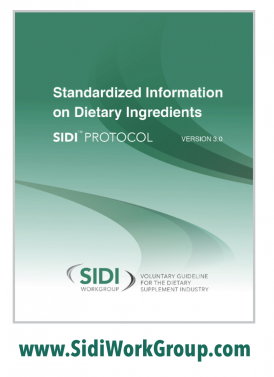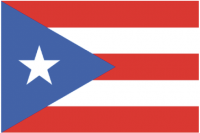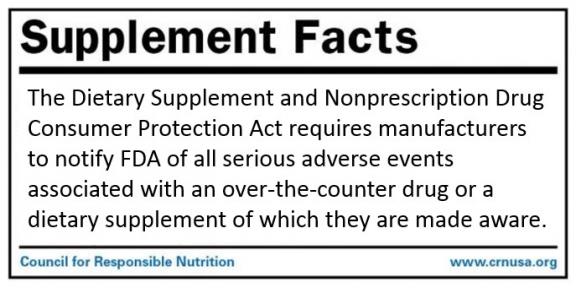A topline report from the Council for Responsible Nutrition (CRN),
the leading trade association for the dietary supplement and functional food industry
CRN to Farm Bill Conferees: SNAP is about getting better nutrition to people who need it
 The House version of the 2018 Farm Bill features language that would allow Supplemental Nutrition Assistance Program (SNAP) participants to purchase a multivitamin with program benefits. In a letter to the Congressional Farm Bill Conferees days before the legislation’s reauthorization deadline, CRN reminded Congress that government data demonstrates the prevalence of nutrient deficiencies in low-income populations, despite continuing efforts at education and improved access—and multivitamins can bridge those nutrient gaps! Highlighting the scientifically supported benefits of multivitamins, CRN wrote, “Opponents, in their efforts to ‘protect’ SNAP, seem to ignore the program’s actual goal—providing nutrition assistance to recipients.”
The House version of the 2018 Farm Bill features language that would allow Supplemental Nutrition Assistance Program (SNAP) participants to purchase a multivitamin with program benefits. In a letter to the Congressional Farm Bill Conferees days before the legislation’s reauthorization deadline, CRN reminded Congress that government data demonstrates the prevalence of nutrient deficiencies in low-income populations, despite continuing efforts at education and improved access—and multivitamins can bridge those nutrient gaps! Highlighting the scientifically supported benefits of multivitamins, CRN wrote, “Opponents, in their efforts to ‘protect’ SNAP, seem to ignore the program’s actual goal—providing nutrition assistance to recipients.”
Unfortunately, the Farm Bill Conference Committee failed to reach agreement before the legislation’s Sept. 30 reauthorization deadline, halting any forward progress until Congress returns for its “lame duck” session in November. As the multivitamin in SNAP provision remains in the bill’s language, CRN will continue its efforts to give SNAP recipients the choice to purchase a multivitamin-mineral with their benefits. If you would like to learn how your company can help include a multivitamin in SNAP, please contact Mike Greene at mgreene@crnusa.org.
CRN applauds FDA’s crackdown on kratom supplements making opioid addiction claims
CRN applauded the enforcement actions of FDA last month after the Agency issued warning letters to Chillin Mix Kratom and Mitra Distributing, two vendors marketing kratom products with scientifically unsubstantiated claims including to “relieve opium withdrawals.” Federal law does not allow dietary supplements to claim to treat or cure any diseases, and responsible dietary supplement manufacturers have consistently taken strong positions against unscrupulous companies marketing dietary supplements for treatment or prevention of diseases—including opioid addiction.
CRN recognizes the significant negative health impacts associated with opioid addiction and abuse. However, dietary supplements are not permitted to claim to treat opioid addiction, and in any case, CRN is not aware of reputable science that supports the safety or addiction treatment claims for kratom. CRN advises retailers that products making such claims are dangerous, illegal, and have no place in the supplement marketplace.
New Protocol helps industry maintain supply chain integrity
 To help supplement manufacturers strengthen supply chains with quality ingredient suppliers, the SIDI Work Group recently released an updated version of its Standardized Information on Dietary Ingredients (SIDITM) Protocol. An integral set of self-regulatory guidelines, the SIDI Protocol provides a standardized format for dietary ingredient suppliers to communicate consistent regulatory and quality information on their ingredients and facilities to inquiring manufacturers. By adopting the SIDI Protocol into business practices, companies have the tools they need to ensure the products sent to market meet the stringent standards and expectations of regulators, retailers, and consumers.
To help supplement manufacturers strengthen supply chains with quality ingredient suppliers, the SIDI Work Group recently released an updated version of its Standardized Information on Dietary Ingredients (SIDITM) Protocol. An integral set of self-regulatory guidelines, the SIDI Protocol provides a standardized format for dietary ingredient suppliers to communicate consistent regulatory and quality information on their ingredients and facilities to inquiring manufacturers. By adopting the SIDI Protocol into business practices, companies have the tools they need to ensure the products sent to market meet the stringent standards and expectations of regulators, retailers, and consumers.
The SIDI Work Group is the dietary supplement industry’s self-regulatory coalition comprised of CRN, the Consumer Healthcare Products Association (CHPA), and the United Natural Products Alliance (UNPA). CRN’s Duffy MacKay currently serves as chair of the Group’s Executive Committee. For more information, contact Haiuyen Nguyen at hnguyen@crnusa.org.
CRN works to protect industry in Puerto Rico
New regulation in Puerto Rico, Regulation 9031, will require retailers, direct sellers, manufacturers, and distributors of dietary supplements to register facilities and certify products with the territory’s Department of Health. In addition to annual registration fees, the rule will impose significant burdens on retailers and marketers of supplements.
regulation in Puerto Rico, Regulation 9031, will require retailers, direct sellers, manufacturers, and distributors of dietary supplements to register facilities and certify products with the territory’s Department of Health. In addition to annual registration fees, the rule will impose significant burdens on retailers and marketers of supplements.
However, PC 1034, legislation that would preempt those registration requirements for U.S. companies registered under the FDA Food Safety Modernization Act, recently passed out of conference committee, after it was approved by both the Puerto Rico House and Senate. Governor Ricardo Antonio Rosselló Nevares now has the option to sign the legislation into law or to veto it. CRN supports PC 1034 and continues to work with the Governor's office to ensure a favorable decision to prevent Regulation 9031 from negatively impacting the industry.
 Short and Tweet
Short and Tweet
Know your #SupplementFacts



